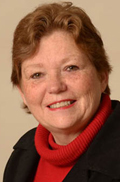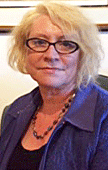Hospice declines to attend community meeting
Administrator | Jun 27, 2015 | Comments 9
The board of Hospice Prince Edward will not be sending a representative to a public community meeting planned by the organization’s volunteers for Monday night at the Picton Community Centre.
The board of directors held a closed-door meeting last Tuesday for volunteers and staff, with representatives of the Community Care Access Centre, Hospice Prince Edward’s legal counsel and Angela Jodoin, the interim administrator, named following the resignation last month of Executive Director Nancy Parks.
“Since the June 23rd meeting has occurred, we are unsure of the purpose of this community meeting,” said Linda Middleton, president, Hospice Prince Edward Foundation. “No specific details have been provided to us as to what issues a board representative are supposed to address since the only information on the agenda items sent to us were ‘Why are we here?’ and ‘How did we get here?’, to be followed by a discussion from the floor.”
“The ‘standing room only’ refers to the fact their meeting was held in the small downstairs meeting room,” said volunteer Annette Gaskin, who noted there were 21 volunteers in attendance, out of 80. “There was some very good information imparted, but we still have concerns and issues and Monday’s community meeting will absolutely go forward at 7 p.m.”
Middleton said that at last Tuesday’s meeting, the CCAC representatives provided insight on requirements of each organization outlined in a Memorandum of Understanding and an overview of the path moving forward.
In a press released issued by the CCAC following that meeting, Joanne Billing, senior director of client services notes “There has been some confusion around 24-hour care versus 24-hour service.
One of the main concerns of Hospice volunteers is that at times they, and family members, will be left to care for patients without the benefit of a nurse, personal support worker or other professional services.
In the release, Billings confirmed “Hospice must provide 24-hour care by using a mix of contracted professional services through the CCAC and working with families and hospice volunteers. However, this does not mean that 24-hour professional service is automatic.”
Billings explained care would be determined by a dedicated “Care Co-ordinator” according to an assessment of needs.
“End-of-life care is a very specific discipline,” said Billings. “Even many health care professionals may not be experts in end-of-life care.”
At Tuesday’s meeting, interim director Angela Jodoin, was introduced as a registered nurse with experience in acute care, ICU and as a CCAC Care Co-ordinator. She stated she agreed to take the role on an interim basis “to get things moving.
“Every patient and their families are different and we have to manage the services they receiving according to their individual need,” she stated in the release, noting four patients have been admitted over the last month.
The CCAC stated last week that nine people were admitted to care at Hospice this year.
Middleton spoke on behalf of the board to explain the recent history of events, the timing and discussions that occurred and the ongoing gratitude and support of the role the volunteers play at Hospice.
“The hard work and leadership of Nancy Parks was recognized by all present at the meeting. I expressed the gratitude of the board for her work to establish the residential hospice and that we were shocked to receive her resignation.”
Recent resignations of board members was also discussed and Middleton noted she advised the volunteers that recruitment efforts are under way.
“We asked our legal counsel to attend to provide an overview of the corporate parameters that the law imposes, how the board operates within those legal parameters, the requirements of the organizations’ corporate bylaws, and the requirements and concerns respecting the confidentiality of certain information.”
Middleton said the board has been “spending a tremendous amount of time working to ensure that the transition from Ms. Parks’ leadership to the new interim administrator is as seamless as possible and that services provided by Hospice Prince Edward continue uninterrupted. We are committed to providing exemplary hospice palliative care in Prince Edward County and to working collaboratively with our partners in the coming weeks, months and years.
She agreed, in the CCAC press release, that the issues such as ongoing communication with volunteers and reporting to the community are open for discussion.
“The community has put its heart and soul into this hospice and we are most willing to hear what people have to say,” said Middleton. “Contrary to rumours, there will be few changes as to how we operate other than how volunteers are utilized. When we are further along in this transition we know there is some work to do in terms of improving communication with our volunteers and our community who are stakeholders in this vital community service.”
However, in a statement Friday, Middleton said the board “respectfully declined the invitation for Monday as we do not believe the board’s attendance at this meeting will benefit or assist Hospice Prince Edward as an organization, which must remain the board’s focus.”
Filed Under: Local News
About the Author:

































What has been the 2015, 6 month usage of Prince Edward Hospice? Just numbers.
The county where I reside has a 6 bed rural hospice in Renfrew Ontario which runs very well. I believe it may be partially funded by the MOHLTC and the rest is through community fundraising. It has its own staff -not contracted to a CCAC agency.CCAC does provide the client with a drug card to cover off those costs. Perhaps it would be worthwhile looking at their website or contacting them for some ideas re. alternate methods of staffing.
Hospice Renfrew………..
The resignation of Nancy is simply the catalyst that should bring to light some of the difficult issues hospice has been dealing with in regard to the CCAC and LHIN since last fall. Points to ponder:
J. Billings states “End-of-life care is a very specific discipline”…..”Even many healthcare professionals may not be experts in end of life.” Yet CCAC wants volunteers to play a larger role in caring for patients. A. Jodoin, an experienced RN in place at hospice “to get things moving”. Hospice has been told in the past by CCAC and LHIN that there is no regard for any clinical opinion pertaining to the care of patients in the residence. Hence the resignation of the previous residential manager, an RN. Communication with volunteers and the community. If not for volunteers and the community fundraising, hospice would not exist, so they have every right to know what is happening.
Emily is correct. Because a friend is gone does not empower volunteers to change policy decisions. We recently lost a fine County CAO but did the public get defined details as to why or the payout on the taxpayers dime? No of course not.
It appears that personnel issues are the driving factor here. That is not public information. The Board cannot and should not address that with volunteers and the general public. Can you imagine the can of worms that would open and legal complications. Time to move forward.
And “NOT” hiding from the public!
Transparency is always the best route to take when the organization is a fully publicly funded one! What possibly should be hidden from public consumption? Place the cards out on the table for all to see and stop with this secrecy as being acceptable. It’s NOT! This Board should be fully accountable and hiding from the public! How much are they spending on lawyer’s fees these days?? The public needs answers or your fund raising is going to be effected which is tragic for the future patients that need this Hospice facility!
I think the volunteers need to let the Board run policy. There may be a very good reason why a change of lead was required. It’s not always for public consumption.
I guess one simple question that perhaps the volunteers are asking is – will the volunteer be left alone to care for the palliative client at the Hospice? I have never heard of this happening in other areas. I am sure this would leave any volunteer without medical background to be concerned.
Could these please be clarified?
Thank you